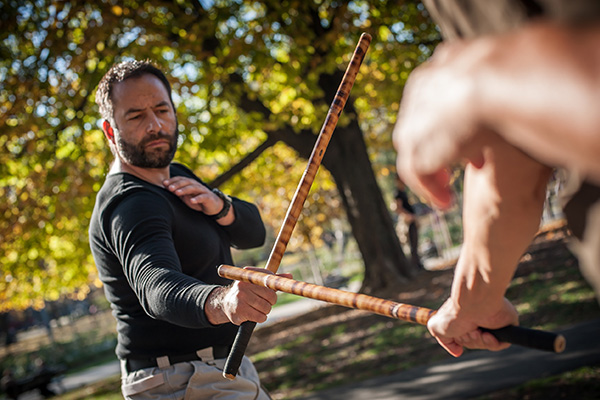money
Tarot Forecast November 2024: King Of Pentacles
 The card I drew for this month is the King of Pentacles, which predicts a time of stability, abundance, and grounded success. This card is associated with material wealth, financial security, and mastery of the physical realm. It signals that now is the time to use your practical wisdom and focus on tangible results.
The card I drew for this month is the King of Pentacles, which predicts a time of stability, abundance, and grounded success. This card is associated with material wealth, financial security, and mastery of the physical realm. It signals that now is the time to use your practical wisdom and focus on tangible results.
Whether we’re building a business, investing in a new opportunity, or seeking a stable foundation, the King of Pentacles reminds us that patience, diligence, and careful planning are the keys to long-term success.
The imagery of the King of Pentacles is rich in symbolism. Sitting on an elaborate throne decorated with carvings of bulls and vines, he is a figure of authority and strength closely associated with the earth element. The grapes and lush greenery surrounding him symbolize fertility, prosperity and the fruits of hard work.
In his hand he holds a golden pentacle coin, representing mastery over the material world and the ability to turn dreams into reality. His robes are embroidered with images of grapes and vines, further reinforcing the themes of abundance and material growth.
The king’s pragmatic energy of self-mastery suggests that this November will not be a time for reckless actions or impulsive decisions. Instead, it’s about making strategic moves with confidence and a long-term perspective.
The symbolism of this card also encourages embracing a provider role – whether in business, family or community – as the King of Pentacles is a generous benefactor and pragmatic leader who shares his wealth and success with others.
Toxic Friendships: End It, Or Mend It?
 Like all relationships, friendships have their ups and downs, testing the bonds that bind us together.
Like all relationships, friendships have their ups and downs, testing the bonds that bind us together.
A true friend is someone who genuinely wants the best for you, celebrates your victories, and supports you through challenges. They offer encouragement, share your joys, and lend a sympathetic ear during difficult times.
The presence of true friends adds value to your life and fosters growth and positivity. You have a healthy friendship that thrives on mutual respect and care, where both parties feel uplifted and inspired to be their best selves.
In stark contrast, a toxic friend is often self-absorbed, putting their own needs and desires above all else. They manipulate situations to get what they want, with little regard for how their actions affect your happiness.
This type of friendship can feel draining, leaving you emotionally drained and questioning your self-worth. Instead of celebrating your achievements, a toxic friend may resort to jealousy or criticism, undermining your confidence.
Toxic friendships can deeply affect our emotional and mental well-being, often leaving us feeling drained and undervalued. These relationships are characterized by manipulation, constant criticism, and lack of support, creating an environment where one party consistently takes more than they give.
The dynamic can include jealousy, competition, or even emotional abuse, making it difficult to feel safe and authentic. Over time, toxic friendships can lead to diminished self-esteem and increased stress, underscoring the importance of recognizing and addressing these unhealthy connections.
Tarot Forecast October 2024: Ten Of Wands
 The card this month is the Ten of Wands, which predicts the potential for life’s challenges to feel overwhelming in the weeks ahead, but this will also offer us the opportunity for personal growth through perseverance.
The card this month is the Ten of Wands, which predicts the potential for life’s challenges to feel overwhelming in the weeks ahead, but this will also offer us the opportunity for personal growth through perseverance.
When we push through difficulties, we not only build strength, but also shape our perception of success. It’s important to remember that how we view our challenges often determines whether we see them as victories or defeats.
The burdens that life places on us make us grow and know that we are resilient when things don’t go our way. Knowing that even when we see situations not working in our favor, if we see value and learning in it, we dare to stand up for ourselves and go for it anyway.
This month it may feel like we’re juggling a lot at once, but in these challenges lies the opportunity to gain wisdom and clarity. It may feel heavy, as if we have too many responsibilities or carry an emotional burden that’s hard to release.
The central image depicted on the Ten of Wands cards is a figure burdened by having to carry ten heavy wands, symbolizing an overwhelming load or heavy burden. The figure is struggling under the weight, illustrating the concept of carrying too much responsibility or facing numerous challenges. It emphasizes the physical and emotional strain that can result from over-commitment or excessive obligations.
The figure is also walking along a narrow path or road, suggesting a journey or direction. The path indicates that the stresses are part of a larger journey or goal, implying that the challenges are necessary to achieve something significant.
A Simple Visualized Meditation To Get Unstuck
 Have you ever struggled with a manifestation problem that no matter what you do, say or think, remains stubbornly unresolved?
Have you ever struggled with a manifestation problem that no matter what you do, say or think, remains stubbornly unresolved?
Whether it’s manifesting much needed money, attracting your soul mate, getting a solid offer on your house, or anything else on your manifesting to-do list, this feeling of stagnation and zero results can be deeply disheartening.
If this resonates with you, spirit wants you to know that you are not doing anything wrong. The universe has heard your prayers, and your dreams are indeed on their way to becoming a reality.
While you may understand this on a spiritual level, it can still be incredibly frustrating to continue to sit in a space of longing and lack while you wait for your desires to materialize.
To help you shift this energy and open yourself up to greater possibilities, spirit has shared with me a simple yet powerful visualized meditation. This exercise is designed to clear energetic stagnation in the areas of your life that feel stuck.
Doing this exercise regularly teaches you to be in the flow and builds trust and faith in the goodness of the universe. It clears your own energy of negativity, positively impacts those closest to you, and blesses the entire planet.
By raising the consciousness of the world, you tap into your inner divine spark and grease the wheels for your desired manifestations. As you move into the flow, you invite grace to work through your life in bigger and better ways.
The Empowering Eight Energy Of September 2024
 As this month unfolds, we find ourselves in a powerful and transformative period in terms of numerology.
As this month unfolds, we find ourselves in a powerful and transformative period in terms of numerology.
September 2024 carries the dynamic energy of the number 8, which resonates strongly with the overall vibration of the year, as this is a year of the number 8.
In numerology, each month is assigned a number based on its position in the calendar year. September is the 9th month of the year, so the number for September is 9.
To find the numerological number for a year, you add up each digit of the year until you reduce it to a single digit. So the number for 2024 is 8.
2024 → 2 + 0 + 2 + 4 = 8
To find the combined energy for a particular month within a particular year, add the number of the month to the number of the year and reduce the sum to a single digit (if necessary).
9 (September) + 8 (year 2024) = 17
Reduce 17 to a single digit: 1 + 7 = 8
Thus, September 2024 carries the dynamic combined energy of the number 8. This creates a powerful alignment that amplifies the qualities of the number 8 this month with significant opportunities to achieve personal growth, balance and abundance.
Tarot Forecast September 2024: Two Of Cups
 The card that came up for this month is the Two of Cups, which carries the symbolism of connection, balance, harmony, mutual affection, and partnership.
The card that came up for this month is the Two of Cups, which carries the symbolism of connection, balance, harmony, mutual affection, and partnership.
In the Rider-Waite Tarot deck, this card depicts a couple standing face to face, each holding a golden cup in one hand. They extend their cups toward each other as if in a toast or exchange, symbolizing a mutual offering of affection, love, support, or a celebration of their shared success. Their gaze is locked, indicating a deep connection and understanding between them.
Above their heads is a caduceus, the ancient symbol of healing, two serpents intertwined, representing their powerful union and the personal and spiritual healing they find with each other. At the top is a winged lion’s head, symbolizing spiritual strength and divine protection in the sacred union of their souls.
The core meaning of this card is the coming together of two individuals. This can be romantic, platonic, or business-related. The emphasis is on mutual respect, harmony, understanding, and a balanced give and take.
The cups also represent emotion. It’s a card of deep emotional intimacy, connection, and a harmonious union based on mutual respect and love. This card often signifies the beginning of a new chapter in a partnership or committed relationship, full of potential and growth.
As we enter this new month, the energy of the Two of Cups will take center stage, guiding us through various aspects of life with themes of harmony, emotional connection and mutual understanding.
Tarot Forecast August 2024: Seven Of Wands
 The card for this month is the Seven of Wands, which predicts the need for determination, resilience and facing challenges head-on.
The card for this month is the Seven of Wands, which predicts the need for determination, resilience and facing challenges head-on.
The Seven of Wands depicts a figure standing on higher ground, holding off opponents below with a single wand. The imagery conveys a sense of defiance and unwavering determination, suggesting that despite the challenges and competition, victory is possible through perseverance and courage.
As we enter this month with the Seven of Wands as our guiding influence, we are reminded of the importance of staying true to our values and beliefs, even in the face of significant obstacles. The Seven of Wands encourages us to adopt a warrior-like spirit, ready to defend our positions and protect what we hold dear.
This card signals a time when we must be prepared to encounter resistance and opposition, whether in our personal, professional or spiritual pursuits. It serves as a reminder that while challenges are inevitable, our strength lies in our ability to remain steadfast and resilient. The Seven of Wands teaches us that through determination and unwavering focus we can overcome adversity and emerge victorious.
We are likely to find ourselves in situations this month where we need to defend our position or beliefs, but remember that your courage and inner strength will see you through. Our resilience and positive attitude will inspire those around us, creating an atmosphere of motivation and progress.